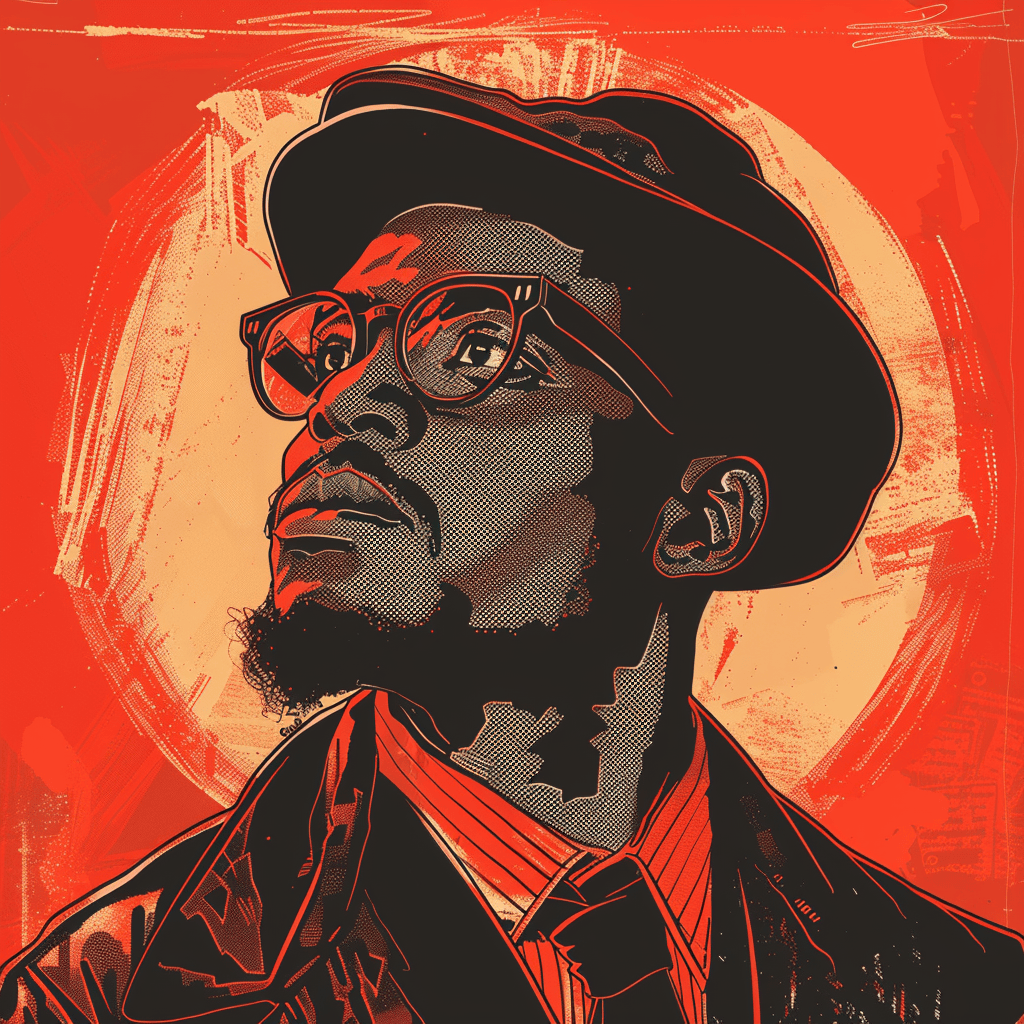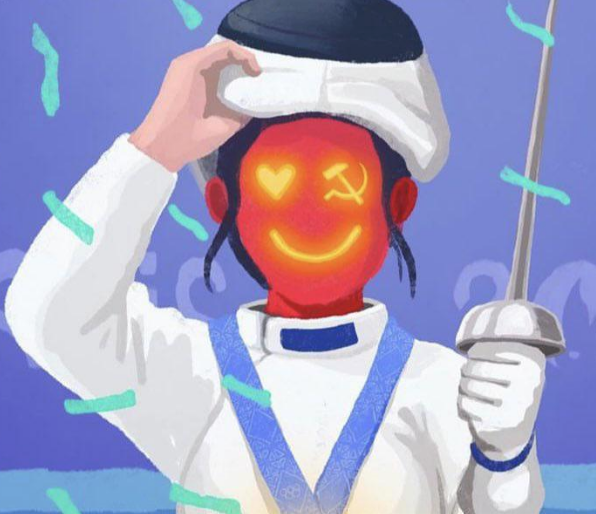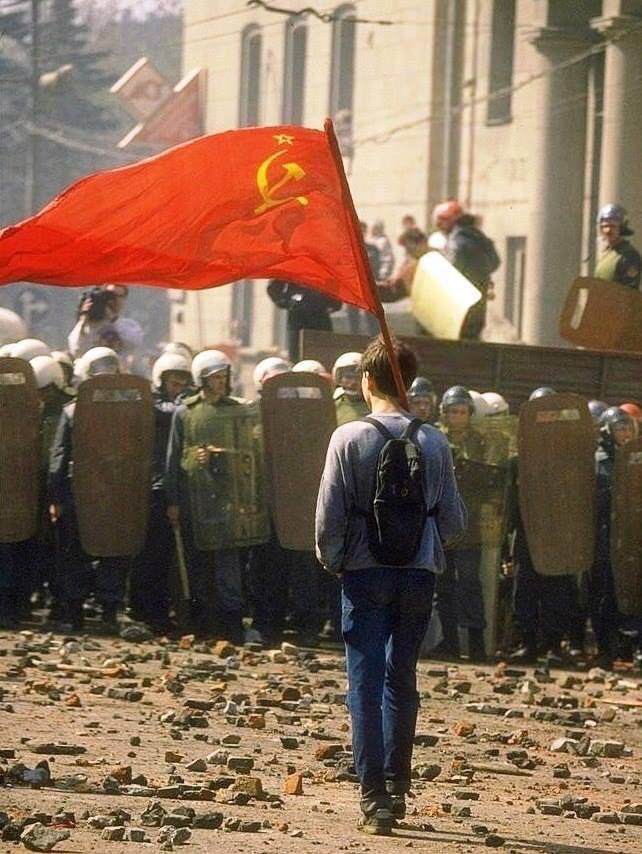Depends how serious I think they are being.
If a genuine question and they are willing to learn, I will usually start with explaining the structure of the government in the given country and how leaders are elected. You do not need direct elections. Nor does democracy require having multiple political parties necessarily (though many countries they like to reference actually have more political parties than some western countries). Nor does the existence of multiple political parties mean the country is a democracy (Hi US). Nothing about the definition of a democracy says it requires multiple political parties or direct elections of a head of state.
In many AES states, a lot of issues are discussed and refined much earlier in the process. By the time something reaches the highest echelons of goverment, it has been reviewed and revised extensively. What might appear to outsiders as something just rumber stamped by the government has actually already been through the proverbial wringer, it wouldn't have got that far without widespread popular support.
If it is a private setting and they are just trying to "gotcha", I will probably just throw a meme at them and move on with my life because no amount of evidence to the contrary I show them would change their mind. It would be a waste of my time.
In a public venue and they are still doing the "gotcha" thing, I will probably engage like in the first example for the benefit of anyone else who might be listening/reading.
Multiple considerations:
-
On authority: in a superficial analysis if 60% of a population vote one way and 40% vote another then 60% have authority over the 40%; and this authority is ultimately backed by violence.
-
On liberal democracies: what if despite the above procedural mechanism the governing apparatus ultimately is beholden to the capital class? We could then describe liberal democracies as democracies for the capital class and authoritarian on the working classes.
-
On voting; is voting every few years for a party that comes to power that makes decisions outside of the control most of the population really consider a democracy for the majority of people? What about democracy on where funding is invested in your local towns or district? How about democracy in your workplace? How about democracy in foreign policy?
-
Could other types of democracies exist? One would need a governing system that is then more powerful than capital. How would this look like? What if there was a system where people voted on policies rather than wasting time and resources on selecting a party who may ultimately not be responsive to their needs?
-
On power; the concerns about concentration of power is the accumulation of wealth at the expense of the population. One would then have to consider what kind of democratic feedback loops are in place in countries like China where they have lifted 800 million people out of absolute poverty in the shortest timescale seen in human history and continued an accelerated development?
Here is a paper by liberals attempting to figure out why an "authoritarian" country like China is significantly more democratic than a liberal democracy that is well worth a read:
https://www.researchgate.net/publication/303554342_Explaining_high_external_efficacy_in_authoritarian_countries_a_comparison_of_China_and_Taiwan
We examine the puzzling phenomenon that authoritarian governments are perceived to be more responsive than democratic governments. By comparing China and Taiwan by both large-N statistical analyses and in-depth case studies, we show that the answer lies in the differences between democratic and authoritarian institutions. First, failing to elect one’s preferred candidate in democracies predisposes voters to critical assessment of government responsiveness. There is no such predisposition in authoritarian countries where elections are nonexistent or nominal. Second, elections incentivize democratic leaders to over-respond to certain groups. There is no such mechanism in authoritarian countries. Third, the solid and clear legitimacy established by electoral victories shield democratic leaders from particularistic demands made through unconventional channels. Without such legitimacy, authoritarian leaders are compelled to cement legitimacy by increasing responsiveness.
I would also look at, if not already done so, RedSails' excellent primer, which touches on the needs of a vanguard party and democratic centralism:
https://redsails.org/why-marxism/
TLDR: socialist countries like China aren't just different types of democracies to the West but they are also significantly more democratic than liberal democracies.
(Hopefully the points the above help - some of which have been explored deeper in comments before mine)
Addendum - one may need to define capitalism; an approach is to consider that socialists differentiate capitalism from commerce and consider it an arrangement of production in contrast to other arrangements of production such as feudalism and slavery. It also noteworthy to consider capitalists as the "high priests" of capital; it is not sufficient to assign blame to a "few bad apples" - the structures that affords this class their power needs to be addressed.
Edits: spelling/grammar/formatting/clarity
-
I explain to them that the essence of democracy lies beyond the number of political parties or whether direct voting is utilized. They are confusing the general concept of democracy, a form of governance where officials are held accountable to the majority, with a specific implementation, such as Western-style parliamentary democracy.
Procedural democracy focuses on establishing a fair and transparent process for decision-making. This includes free and fair elections, protection of minority rights, rule of law, and so on. However, solely focusing on procedure leads to situations where outcomes such as social and economic inequalities are ignored.
On the other hand, China has a substantive democracy, which emphasizes achieving just and equitable outcomes with a government that's responsive to the needs of its citizens. Democratic centralism the way it's practiced in China ensures that the system truly serves the people and produces a just society.
Moreover, this contrast is evident in public sentiment. The vast majority of people residing in China perceive their system as democratic and responsive to their needs, whereas large swaths of Western public hold a different view.
- https://www.newsweek.com/most-china-call-their-nation-democracy-most-us-say-america-isnt-1711176
- https://www.csmonitor.com/World/Asia-Pacific/2021/0218/Vilified-abroad-popular-at-home-China-s-Communist-Party-at-100
- https://www.bloomberg.com/opinion/articles/2020-06-26/which-nations-are-democracies-some-citizens-might-disagree
- https://web.archive.org/web/20230511041927/https://6389062.fs1.hubspotusercontent-na1.net/hubfs/6389062/Canva%20images/Democracy%20Perception%20Index%202023.pdf
- https://www.tbsnews.net/world/china-more-democratic-america-say-people-98686
- https://web.archive.org/web/20201229132410/https://en.news-front.info/2020/06/27/studies-have-shown-that-china-is-more-democratic-than-the-united-states-russia-is-nearby-and-ukraine-is-at-the-bottom/
I tell them China has multiple parties. What made them think it only has one? And what else did they say? Then we can go through the nonsense with a nit comb.
Edit: look at this shit: https://en.m.wikipedia.org/wiki/List_of_political_parties_in_China:
The People's Republic of China is a one-party state ruled by the Chinese Communist Party (CCP). Despite this, eight minor political parties subservient to the CCP exist.
Wikipedia calls it a one-party state in the same opening paragraph that admits the existence of eight other parties. What's the criterion for being a one-party state? That only one party rules at a time? A lot of states fall into that category. Would the CPC allow another party to take control? Unlikely. But again, if that's the definition, then a lot of states fall into that category.
I find the problem with that is you start falling into the trap of implicitly accepting their narrative that the number of parties has any impact on whether the system is democratic or not. I'd argue it's better to push back on the whole notion from the start.
The colon at the end of the url breaks it.
https://en.wikipedia.org/wiki/List_of_political_parties_in_China
I say they are correct. China, as USSR before it, is ruled by a Marxist-Leninist party practicing democratic centralism, meaning they are not liberal democracies by definition. From China's (and USSR) perspective, they are practicing dictatorship of the proletariat, while western "democracies" are in fact dictatorships of the bourgeoisie.
https://en.wikipedia.org/wiki/Democratic_centralism
https://en.wikipedia.org/wiki/Liberal_democracy
https://en.wikipedia.org/wiki/Dictatorship_of_the_proletariat
https://en.wikipedia.org/wiki/Dictatorship_of_the_bourgeoisie
Once you get the basic terms straight and reach the agreement that China and other socialist states never claimed to have the same form of government as the Western democracies, you can start discussing which system of government gives it's people actual power.
I usually go for Socratic questioning. Have them describe to you what they think a democracy is. 9/10 times they'll give you a definition that makes having multiple parties irrelevant. Really get them to explain to you why their own view on China is inconsistent.
Isn't true democracy the people choosing what they want? Even according to western polling, the CPC has 80%+ approval from Chinese people.
Now on the point of there not being more parties, why does there need to be more than 1 party? The people are already satisfied with the CPC, so that alone is a non-starter. Further, multiple parties needlessly impede progress with each administration trying to undo the work of the previous one.
Most libs will argue back and say the Chinese citizens are brainwashed and forced to vote for the party or risk losing points on their social credit score.
In China you can change policies, but cannot change the party in power. In America it is the other way round.
Do you have a favourite colour and party mascot? You can pick from either this stunning blue donkey or brilliant red elephant.
Choice!
Other people can give more thorough answers than me than I can, but since I'm first I'll go ahead and say that I begin by asking them if they know what the national peoples congress is. They nearly always say no. Then I ask them if they know what the Politburo is and all of the layers of it. They usually say no. I'll give them a short primer if they're still interested that the National People's Congress are direct people's representatives voted in layers.
If they haven't heard of anything and they're at least kind of curious, I'll tell them to start there because there's actually a lot more voting going on than people think. You'll never convince someone in one conversation that a country that they believe is not democratic, is actually democratic. But this is enough to get them to question things, and that's pretty much how I started, so hopefully it helps others that I talk to.
If they're willing to continue listening, then I mentioned that the government has a over 90% approval rate and has for a very long time. If I'm paying attention to the news lately and I've heard good things that liberals would actually support coming out of China, I will usually mention those. The most recent one about the workers' rights to have a council on their board of directors in every company, that kind of stuff.
The hard one for people to get past is democratic centrism, but they need to learn a little bit about what communism actually is before they can stomach that. That usually comes off as anti-democratic. When in reality, it's just a good fucking idea. They just need a better theoretical basis before accepting that democratic centrism is necessary to keep the peace.
If who I'm talking to is pretty pissy about United States democracy, then I usually put my thumb on that scale and ask them if they think that two parties trying to sabotage each other all the time is really a good strategy. Even if Democrats get something passed, if the Republicans turn around and spoil the barrel with their bad apples, then nothing can get done anyway. Even when you pass policy, it tends not to work.
If they're a gun-toten red-blooded American, I'd probably just stick to the workers' rights stuff. How their middle class alone is bigger than the entire United States population, and is growing, not shrinking as it is in the United States.
I wish I knew more about the governmental structure of China, do you happen to have any sources you can recommend for further reading?
Other people can give more thorough answers [than I can]
Writes six paragraphs
Good response, btw
I live in the US. I laugh and ask them how much control they believe they have over this government. No one ever has a good response to that. Then you just shrug and say "I guess maybe we can't judge if a system is a democracy based on how much it resembles ours then.''











